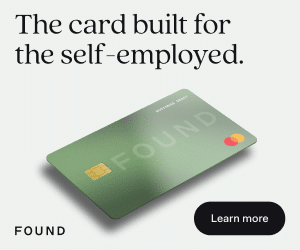Although marketing has been here for ages, we can’t deny the fact that it has been changing especially rapidly in the past decade. The forms, tactics, and approaches to promoting brands and products have been greatly affected by technology and innovation. Yet, they were impacted even more by the changing customer preferences and behaviors.
Now, the future of marketing is getting a bit clearer than a few years ago. And here are some of the biggest hard truths you need to know about it:
- While making sales might not get too hard, ensuring recurring sales is a challenge because brand loyalty is in decline.
- The traditional sales funnel is gone now that consumers get through the awareness, consideration, and, sometimes, even decision stages on their own. And your sales team really steps in much later down the road than before.
- Today, customers are in control of everything.
Given these new realities, all marketing specialists, freelancers, and agencies have to rethink their strategie di marketing. As for marketing students who are still in college, you also need to delve into future-proof tactics to prepare for the labor market. Hence, you may want to find someone who can offer professional paper writing while you explore the future of marketing.

Get Weekly Freelance Gigs via Email
Enter your freelancing address and we’ll send you a FREE curated list of freelance jobs in your top category every week.
A larger control situated in consumers’ hands requires us to approach marketing with a customer-first mindset. In this guide, I will give you a few emerging strategies for driving success through innovation and customer engagement.
Creating Holistic, Customer-Centered Experiences
There are four primary reasons that explain why the modern consumer is in control of the entire marketing process:
- The access to information has gotten too extensive, allowing consumers not to take for granted what brands tell them and conduct independent research themselves.
- The rise of social media and user-generated content enables consumers to share their opinions limitlessly. This enables them to exchange unique experiences with different brands and compare options.
- People no longer trust generic marketing messages. They demand personalization.
- Modern consumers are more skeptical and distrustful than ever before. They demand authenticity from brands and want all processes to be transparent.
Now, how can you create meaningful marketing experiences given all these factors? – By focusing on consumers and their wants, of course.
Namely, there are two core tactics you should adopt in your marketing strategie to create user-centered experiences:
- Do your research and map out new customer journeys. You want to refine your customer personas better than ever before in 2024. Analyze your historic data, as well as competitor data, to learn how your target audience researches products and services and understand the key touchpoints that can bring added value and help you convert more prospects. Define specific content types, topics, and keywords relevant to every stage of your customer’s journeys.
- Integrate a wealth of online and offline channels of interaction. Given more power for research and freedom of choice, modern consumers tend to leverage a variety of mediums to make their purchasing decisions. At different stages of their journeys, they can read blogs, check out your landing pages, monitor social media, and even ask for other consumers’ suggestions in forums or rely on word-of-mouth marketing. In order to influence their decisions at different stages, you want to create truly omnichannel experiences and connect with your prospects across all mediums to build stronger relationships.
Gaining Benefits From User-Generated Content (UGC)
For many years, banners, magazines, and other forms of advertising were among the primary ways to tell consumers about your product or service and get them interested. Today, however, this doesn’t work anymore.
In 2024, user-generated content (or UGC) is a new big thing. UGC can be shared nearly anywhere, including review platforms, social media, independent blogs, and other channels. And it generates way more engagement and results than other types of content.
As many as 93% of marketers agree that UGC content gains more trust from consumers compared to traditional marketing materials. Content created and shared by users serves as a vote of trust and reliability. It’s much like customer reviews. However, also supported with appealing visuals that can generate additional interest in your brand. On top of that, UGC also saves you money on content creation – on average, it can cut down your costs by $70,000+.
By integrating UGC into your online marketing strategie, you can reduce your expenses, boost ROI, and convert more prospects in the long run.
Focusing on Data for Greater Personalization
As technology evolves, not only users gain broader access to large volumes of data. Businesses do too. Cutting-edge marketing software enables you to collect, process, and interpret huge sets of information from your own site and elsewhere on the web, including your competitors’ sites. And this brings us to another key strategy to adopt in 2024.

Of course, data-driven marketing isn’t a new concept. Whether you’re working on a freelance basis or at an agency, chances are that you are already using some analytical tools to make data-driven decisions for your campaigns. Yet, the truth is that you may not be relying on data quite enough.
To drive marketing success in 2024 and beyond, agencies and independent professionals need to adopt advanced technologies like artificial intelligence (AI) and machine learning. Together, these technologies can help you analyze your competitors, research the market, and target your audience more accurately than before. You can use this to tailor your marketing messaging to consumers at every stage of their journey and ensure better conversions. Yet, most importantly, you should leverage these technologies to foresee future trends and customer behaviors. This will make your strategie de marketing future-proof.
Automating Repetitive Tasks
Speaking about the use of AI in marketing, let’s not forget about its automation capabilities. With the help of artificial intelligence and other helpful technologies, marketers can automate their workflows and greatly boost efficiency.
The examples of use are huge – from generating content ideas with AI to leveraging chatbots for improved customer experience – different applications of AI can help your campaigns thrive. And you shouldn’t neglect this opportunity.
Leveraging Ethical Approaches to Data and Privacy
Reliance on big data in marketing offers greater possibilities for personalization and more consumer-centered experiences. Yet, one of the major challenges arising from it is data privacy.
Having access to deep and diversified consumer information, some businesses tend to misuse it or, at least, use the personal data thoughtlessly. Needless to say, this can cause quite a lot of problems. And that’s why ethical approaches to data and privacy are among the main emerging marketing tactics we’ll need to use in 2024 and beyond.
Here’s what this means for marketing experts:
- You must get acquainted with increasingly stringent privacy regulations, such as GDPR, CCPA, and others, and explore how to continue your operations without violating them.
- You should drive your marketing strategies forward using third-party information you receive directly from your clients. This is a much more ethical way to personalize your messaging.
- You need to ensure that your campaigns are built around the ideas of trust and transparency in everything. This implies integrating consent acquisition and management techniques, transparent policies on data collection and use, and other ethical approaches that will help you gain and retain consumers’ trust.
Embracing Technological Advancements
Lastly, if we’re talking about things that are driving marketing development, obviously, emerging technologies take the first spot. The rise of such technological advancements as augmented reality (AR), virtual reality (VR), and metaverse will inevitably change the way we handle marketing. And you need to be prepared for this and ready to adopt innovations as quickly as possible.
You can already observe some examples of immersive marketing out there. One of the world’s best-known cosmetic brands – Mac has implemented AR technology on its site to promote its products. Users who are browsing their catalog can virtually try on different shades of lipstick, eye shadows, and other products in real-time to make their choice. Needless to say, such an innovative approach to marketing helps the brand drive more sales, while also creating user-first experiences.
To stay ahead in 2024 and beyond, you should also stay open to innovations and experiment with different technologies to gain a competitive advantage.
Final Words
Everyone who’s already in marketing or just planning to get into this sector should know how dynamic and ever-changing it is. This industry has already changed a lot since its first manifestations. And now, it’s changing at a more rapid pace than ever before, fueled by technological advancements.
After many years of changes, these days, marketing is nothing like what it used to be just a decade ago. It’s fully controlled by consumers, meaning that marketers have to make their strategies more people-centered.

After reading this guide, you have a practical roadmap to building and implementing effective online marketing strategie in 2024 through innovation and customer experience. Start using these tactics now to ensure long-term success!

Keep the conversation going…
Over 10,000 of us are having daily conversations over in our free Facebook group and we’d love to see you there. Join us!

